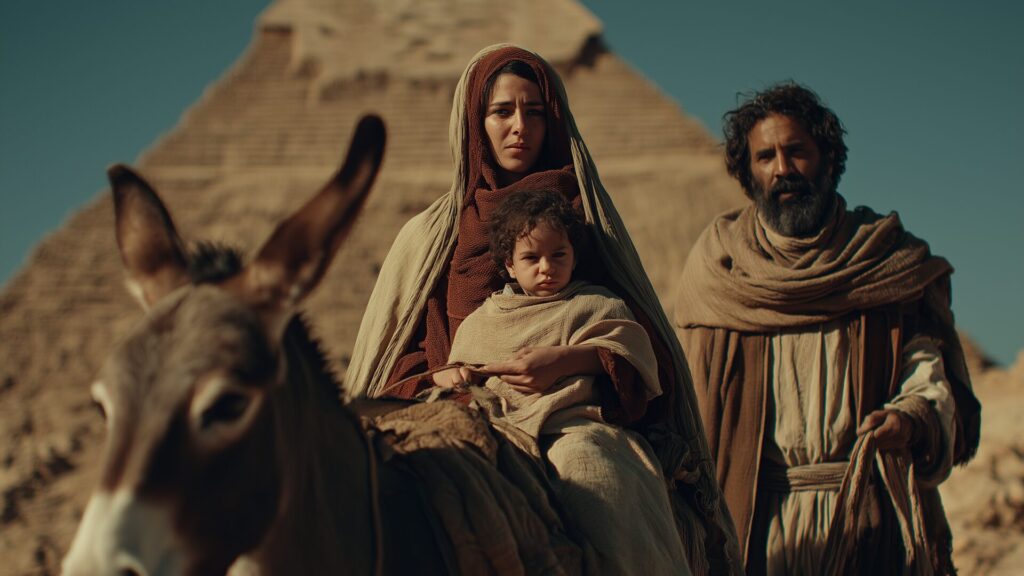For their prominence in many re-tellings of the Christmas stories, the magi have only a relatively brief cameo in Matthew’s narration of the story. And, while so many nativity scenes like to include them for additional visual interest, it seems highly unlikely they arrived in Bethlehem on the night Jesus was born. More commonly referred to as wise men—and, of course, tradition has dictated that there were three of them—these mysterious visitors were also described as “royal astrologers” (see Matthew 2:1). They were mysterious and exotic and seemed to catch the attention of the inhabitants and leaders in Jerusalem by their arrival and the awkward questions they asked (see Matthew 2:3).
There has been much conjecture and imagination about where the magi came from and what motivated their search for the newborn King. Some have suggested that they might have been students of the writings of the Babylon-based Hebrew scholar, politician and prophet Daniel of some 500 years earlier. Other have theorised that they were ancient astronomers who assumed that a new and unexpected star would herald a new power and were curious to find out what this might mean.
And then there was the star itself, which they reported had led them to Jerusalem. After their inquiries with the political and religious leaders of the nation, “the star they had seen in the east guided them to Bethlehem. It went ahead of them and stopped over the place where the child was. When they saw the star, they were filled with joy!” (Matthew 2:9,10). The story described how these strange visitors gave their gifts and worshipped the Child—but the Bible story does not give more details or explain further.
Among the various characters in the story of the birth of Jesus, I have a soft spot for the magi. For 27 years now—although adapted in the past couple of years into different formats amid COVID restrictions—a number of churches in Melbourne have worked together to produce an interactive, entertaining and thoughtful re-telling of the story of Jesus’ birth. Called Road to Bethlehem, it has grown to regularly attract more than 15,000 guests over four nights each year—and even more with an online audience. It has also been adapted and performed in other locations around Australia and New Zealand. As one of more than 300 volunteer cast, crew and team members, I have played each one of the three different “wise man” roles over a number of years, acting in the same two scenes as many as 15 times each night as different groups move through the story.
In these roles, I have had many opportunities to reflect on these strange characters, the nature of their quest and the role they played in Jesus’ story. In this re-telling of the story, as the wise men exit their first scene, they are led to the palace by the local Roman centurion, while the dramatic action continues in the Jerusalem marketplace. Many times I have heard the dialogue continue as we walk away, commenting on our dangerous questions about a newborn King and our impending audience with Herod: “I wouldn’t want to be in their sandals . . .”
But the wise men offer an important perspective on the story. I have imagined them as learned men who don’t fit with the more provincial characters in Jerusalem, but who are puzzled and disappointed by the unwitting ignorance and self-interested plotting they encounter.
There is a recurring motif in the stories of the Bible of outsiders who contribute significantly to the progress of God’s interactions with those who assume they are His people. It is too easy for those who seem chosen by God to imagine that the story is solely about them. But, every so often, unexpected outsiders appear to somehow bless or assist the people and to alert or even warn of what God was doing among them.
In this case, the magi were the first proclaimers of the good news of the birth of Jesus—the new King of the Jews—to the political and religious leaders and all the people of Jerusalem (see Matthew 2:3,4). We can only imagine how the story of Jesus might have been different if the magi’s questions had been taken more seriously by the Jewish religious leaders and people of Jerusalem. We can also wonder if there might have been some who did hear the questions, made their own inquiries and, as a result, might have become followers of Jesus when He began His public ministry some 30 years later.
The other important role that characters such as the magi play in the stories of the Bible is to remind the people—and the readers—that God’s story and action in the world are bigger than had been anticipated. Because they seem to appear from nowhere, we can forget that there is a whole other story that has led them to that point. Of course, there were likely months of travel to arrive in Jerusalem, but there was also the study and reflection that led them to look and ultimately prompted their journey and their worship (see Matthew 2:11). The story also makes clear that they were open to the leading of God—“When it was time to leave, they returned to their own country by another route, for God had warned them in a dream not to return to Herod” (Matthew 2:12)—so we can surmise that He had led and guided them to that point.
The story of the magi demonstrates that there is a place for outsiders in the story of God, and sometimes this is more faithfully filled than by some assumed insiders. Not only are outsiders invited and welcomed, they are necessary for some elements of the story. While it seems that their quest triggered the murderous rage of King Herod (see Matthew 2:16), we should not hold them responsible for the way in which he responded to their inquiries. He might have chosen to genuinely join them in their desire to worship the Child (see Matthew 2:8). Instead, some traditions suggest that their expensive and exotic gifts might have provided the financial means for Joseph, Mary and Jesus during their time living as refugees in Egypt.
Offering so much more than a touch of the exotic in a nativity scene or Christmas pageant, the magi remind us that in the story of God we are all outsiders, in a sense. But His is an open story. Whoever we might be and wherever we are from, our story can become part of His story—if we choose.
Nathan Brown is co-author of Advent for Kids and author of Advent: Hearing the Good News in the Story of Jesus’ Birth, from which this article is adapted.






